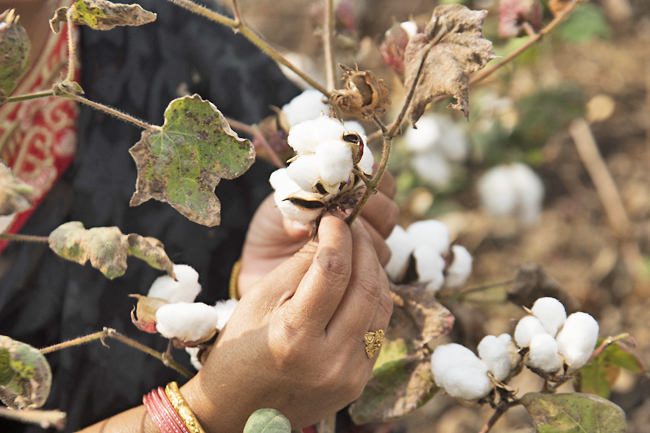XINHUA – As the sun rose over the lush cotton fields in Menoufia Governorate, just north of Cairo, Hossam Saeed’s weathered face was lit up with the joy that only a bountiful harvest could bring.
Alongside fellow farmers, he descended into the cotton fields, prepared to gather the fluffy white crop that has long underpinned Egypt’s agricultural economy.
“Every day for months, we have tended to these plants with love and care,” Saeed told Xinhua. “When we harvest, we gather not just cotton, but the rewards of our labour and dedication.”
This year, the Egyptian government’s decision to raise cotton prices has significantly benefitted farmers like Saeed. This increase not only enhances their profits but also strengthens family incomes, providing a much-anticipated lifeline.
“The government’s support has given us a sense of security,” Saeed said, deftly plucking soft cotton from the bolls. “It promises that our hard work will be valued and encourages us to keep going.”
The new pricing scheme marks a substantial increase from last season’s rates. A medium-staple kantar (approximately 157 kilogrammes of seed cotton) now sells for EGP10,000 (USD206) in Upper Egypt, while a long-staple kantar commands EGP12,000. This contrasts sharply with last year’s prices of EGP4,500 and EGP5,500, representing a significant windfall for farmers.
Egyptian cotton, once referred to as ‘white gold’, boasts a legacy spanning two centuries.
The nation’s unique climate and fertile soil create ideal conditions for the crop. Cotton from Egypt has been long considered one of the world’s best and a byword for luxury. However, following the 2011 revolution, the industry struggled due to governmental neglect, resulting in declining quality.
Now, with renewed focus, the government aims to double cotton production.
“We have a strategy to promote cultivation across three key areas: seed variety, sustainable farming practices, and global market linkages,” said spokesman for Egypt’s Cotton Research Institute Mostafa Emara.
The Ministry of Agriculture has begun providing farmers with new, climate-resilient seed varieties that mature early and yield higher amounts. “We are also adopting farming methods that align with international standards to produce clean cotton,” Emara added.
On the marketing front, a new trading system established in 2019 has bolstered Egyptian cotton’s competitiveness in the global market. “This system links our farmers directly to the world stage,” Emara noted.
This year, cotton cultivation has expanded to 311,000 acres, up from 255,000 acres last season, with projections of producing over two million kantars, compared to last year’s 1.3 million.
“We aim to cultivate 750,000 acres of high-quality cotton by 2030,” Emara stated, envisioning a thriving future for Egypt’s cotton industry.
Back in the fields, Saeed’s ambitions mirror this national vision. He plans to double his cotton acreage next season.
“With these prices, we can sustain our livelihoods and invest in better farming practices,” he said, beaming with snow-like soft cotton in his hands.





